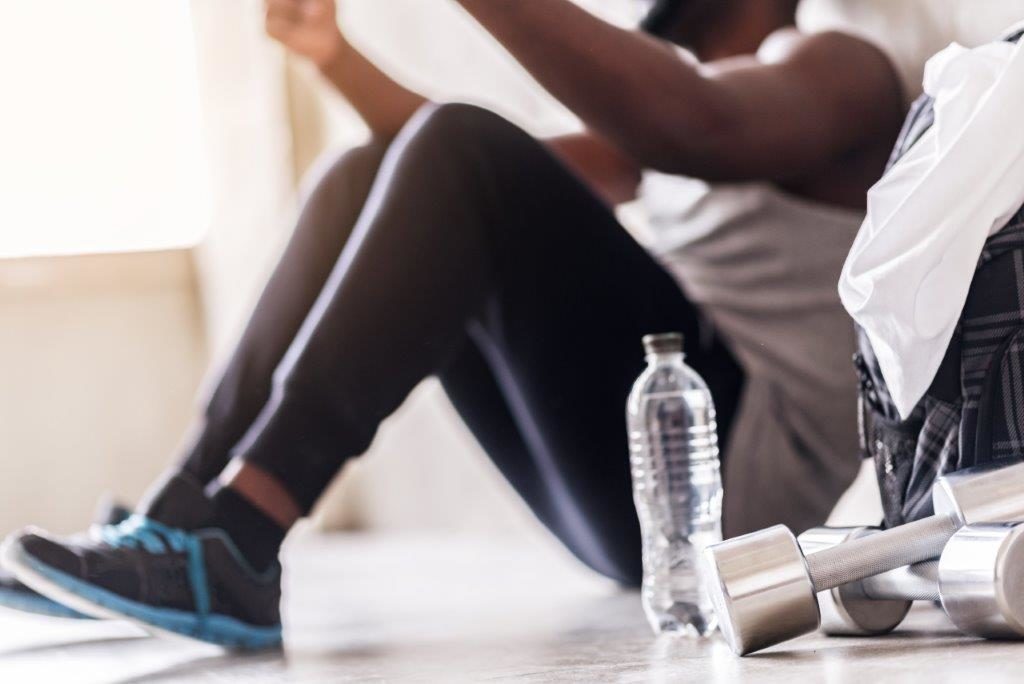
How to avoid injuries when working out
The best way of achieving your fitness and weight loss goals is to ensure your workout regime is consistent. However, many individuals — whether amateur or experienced — can suffer an injury, which can have a significant impact on your ability and whether you reach your targets or not.
Despite this, there are several things you can do to minimise the risk of you suffering an injury while exercising. Whether you are just embarking on your fitness journey, or are fairly experienced, it's important to keep these tips in mind, especially as the weather turns colder.
Know your limits
Although it's important that you have regular activity to maintain a healthy lifestyle, it's important that you recognise where your limits are. Most people that exercise regularly have a certain competitive streak, whether that's with themselves, colleagues or friends, and this means that people can push their bodies too far, which can result in an injury.
It's important to know your body's limits, and to recognise when it needs a break. Although being driven and determined is a great attribute, especially when it comes to losing weight or achieving a certain goal, your muscles need a rest from time to time. The best way to achieve this balance is to dedicate at least one day a week where you do no heavy exercise. This will give your body and muscles the chance to rest and help prevent injuries.
If you find that you are really struggling to take one day off, try using this day to meet up with friends, or have a date night with your partner. This will help you get the right balance between work, exercise and socialising. You could also opt for something a little more relaxed, such as yoga or pilates.
Do your preparation
As with most things, preparation is key, and the same goes for exercising. It's vital that before you start an activity you have done your research to make sure that you are ready, which will also reduce your chance of getting injured. What preparation you need to do highly depends on the type of exercise that you are embarking on, but here are some general tips that you ought to consider.
Before you start any exercise, you should stretch out your muscles to make sure they are warmed and ready to work. This is especially important during the colder months as your body is more likely to seize up when your muscles are already cold and stiff.
If you are a keen runner, it's important that you look at the route you want to take before you start running. Ideally, your path should be somewhere that is well lit, smooth and brings you back in a full circle to your home. As the nights start drawing in, it's best that you pick a well-lit route in case you get injured while you are running, while a smooth route will minimise the risk of you injuring your feet during a run. Having a path that leads you back home ensures that you don't get completely exhausted from your exercise, and then have to think about how to get back to your house.
Perhaps the most important preparation for exercise is to ensure you have the right equipment. At this time of year, runners will want to think about having the right gear that is reflective and warm, but allows your skin to breathe. However, it's vital that you have all the resources you need whenever you work out. This may be having a non-slip yoga mat for your practise, or having the right safety helmet for your cycling route.
Fuel your body
In order to ensure you don't suffer an injury, it's vital that you are fueling your body in the right way. If you are eating a lot of sugary snacks before your run or not eating enough, you may find that you are unable to complete your normal fitness regime as your body does not have the fuel needed to power through.
You should aim to eat a couple of hours before you work out, and make sure that you have plenty of carbohydrates, which will give you the steady release of energy needed to complete your goals.




